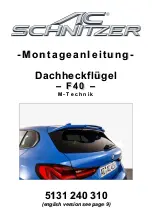
70
BATTERY INFORMATION
The battery(s) must be securely strapped at all
times. The battery(s) is charged by the tow vehicle’s
charging system while the tow vehicle is running
or when connected to 120-volt power through the
power converter. If equipped, the on-board generator
charges the battery while running through the power
converter.
Check that the battery liquid level is correct (weekly in
warm climate, monthly in cold climate). Don’t forget
to also check the condition of your tow vehicle bat-
tery. Add distilled water as required. Clean battery
terminals and cables periodically with a wire brush
and baking soda. Be sure the caps are securely in
place when cleaning. Ensure that the wing nuts on
top of the battery are tight. Loose wing nuts can
cause arcing and intermittent or loss of 12-volt power.
Use caution not to touch battery terminals to metal
doorframe when removing or installing the battery.
Always disconnect the negative (-) cable first and
reconnect it last.
Remove rings, metal watchbands, and other metal
jewelry before working around a battery. Use cau-
tion when using metal tools. If the tool contacts the
battery terminals or metal connected to them, a short
circuit could occur which could cause personal injury
or fire.
Do not allow battery electrolyte to contact skin, eyes,
fabrics or painted surfaces. The electrolyte is a sul-
furic acid solution that could cause serious personal
injury or property damage. Wear eye protection when
working with batteries.
BATTERY STORAGE PRECAUTIONS
When you store your trailer for a week or more be
sure to disconnect the battery(s). Electronic tuning
radios, the propane detector, and the CO detector all
draw a small amount of current when the battery is
connected. Even disconnected batteries will naturally
“self-discharge” about 1 % of capacity per day. If
you intend to store your trailer for any length of time,
remove the battery(s). Store it in a cool, dry place and
recharge every month. Batteries will discharge on
their own. Recharging will also help prevent problems
with battery sulfation which leads to premature bat-
tery failure.
BATTERY CHARGING
Normally the battery(s) will be kept charged by either
the tow vehicle charging system while on the road or
by the AC/DC power converter when plugged into AC
service. On those occasions when the battery needs
to be charged from a different charging source,
please follow these safety guidelines:
Disconnect both cables to prevent damage to the
trailer’s electrical system.
Do not smoke near batteries being charged or which
have been recently charged. Please note that bat-
teries are being charged while you drive, and while
you are connected to 120-volt AC power through the
power converter/charging circuit.
Use care when connecting or disconnecting booster
leads or cables while charging. Poor connections are
a common cause of electrical arcs that can cause
explosions.
Check and adjust the electrolyte level before
charging.
Fill each cell to the indicator level with distilled water.
Always remove the vent caps (if equipped) before
charging the battery.
Never expose the battery to open flame or electric
spark. Chemical action in the battery generates hy-
drogen gas that is flammable and explosive.
Before connecting the battery cables, turn off all
electrical components to avoid sparks. Connect the
BLACK
cable to the
POSITIVE (+)
post on the bat-
tery. Connect the
WHITE
cable to the
NEGATIVE (-)
post.
NOTE:
This is different than the automotive indus-
try which uses red and black. There are fuses on
the front of the power converter that will protect the
trailer’s electrical system if you accidentally connect
the battery in reverse.
The 30 amp main circuit breaker located on the chas-
sis in the car connector junction box will not allow
power into the trailer or the battery(s) to be charged
when an overload or short circuit occurs. To reset the
breaker, disconnect and reconnect the white negative
(-) cable from the battery.
If the breaker continues to trip, a short circuit or over-
load condition is indicated. Have the system checked
by qualified personnel.
Summary of Contents for 1130
Page 6: ...6 This page intentionally left blank ...
Page 8: ...8 This page intentionally left blank ...
Page 10: ...10 This page intentionally left blank ...
Page 12: ...12 This page intentionally left blank ...
Page 22: ...22 This page intentionally left blank ...
Page 28: ...28 This page intentionally left blank ...
Page 34: ...34 This page intentionally left blank ...
Page 48: ...48 This page intentionally left blank ...
Page 54: ...54 This page intentionally left blank ...
Page 60: ...60 This page intentionally left blank ...
Page 68: ...68 This page intentionally left blank ...
Page 76: ...76 This page intentionally left blank ...
Page 86: ...86 This page intentionally left blank ...
Page 89: ......
Page 94: ...94 This page intentionally left blank ...
Page 113: ...113 SCHEMATICS ...
Page 120: ...120 ...
Page 121: ...121 ...
Page 123: ...123 ...
Page 131: ...131 ...
Page 132: ...132 ...
















































